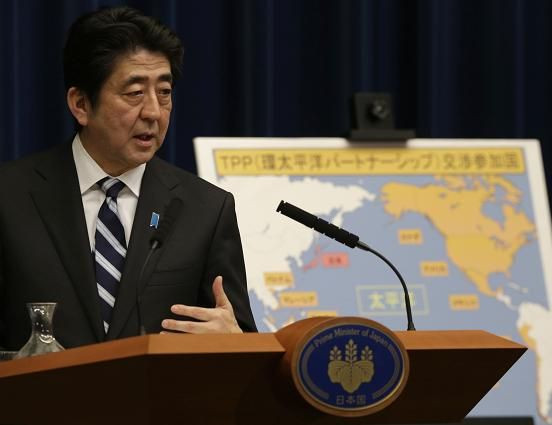Japan And US Agree To New Terms That Could Bring Japan Into The 11-Nation Trans-Pacific Partnership Free Trade Agreement

Prime Minister Shinzo Abe has his sights set on a Japanese resurgence in the global economy and has agreed to a deal with the U.S. that could bring his country into the Trans- Pacific Partnership free trade network.
Tokyo and Washington have agreed bilaterally to a new set of terms despite opposition from labor and lobby groups on each side.
Japan's powerful farm lobby considers certain farm products "sensitive" to trade, while some American labor groups are worried about the impact of removing U.S. tariffs on autos. However, terms of a future TPP deal would see the U.S. phase out auto tariffs by 2.5 percent on cars and 25 percent on trucks over the longest period possible.
Trade officials agreed to keep talking bilaterally about non-tariff barriers in areas such as insurance and investment.
"I think Japan's national interests are protected under this U.S.-Japan agreement," Abe told reporters on Friday after a meeting with cabinet ministers, adding he hoped Japan could take part in the negotiations as soon as July.
The deal now awaits formal approval from all 11 participating nations which include Australia, Brunei, Canada, Chile, Malaysia, Mexico, New Zealand, Peru, Singapore, Vietnam and the United States.
New Zealand Trade Minister Tim Groser said in March that some TPP member nations could talk as soon as April 20-21 about whether to allow Japan into the talks, when trade officials from 21 regional states meet in Indonesia for the annual Asia-Pacific Economic Cooperation forum.
Abe announced his decision to join the trade talks last month after easing fiscal spending and monetary policy. If Japan joins the trade network, the pact would apply to a zone that produces almost 40 percent of the world's economic output.
© Copyright IBTimes 2024. All rights reserved.






















